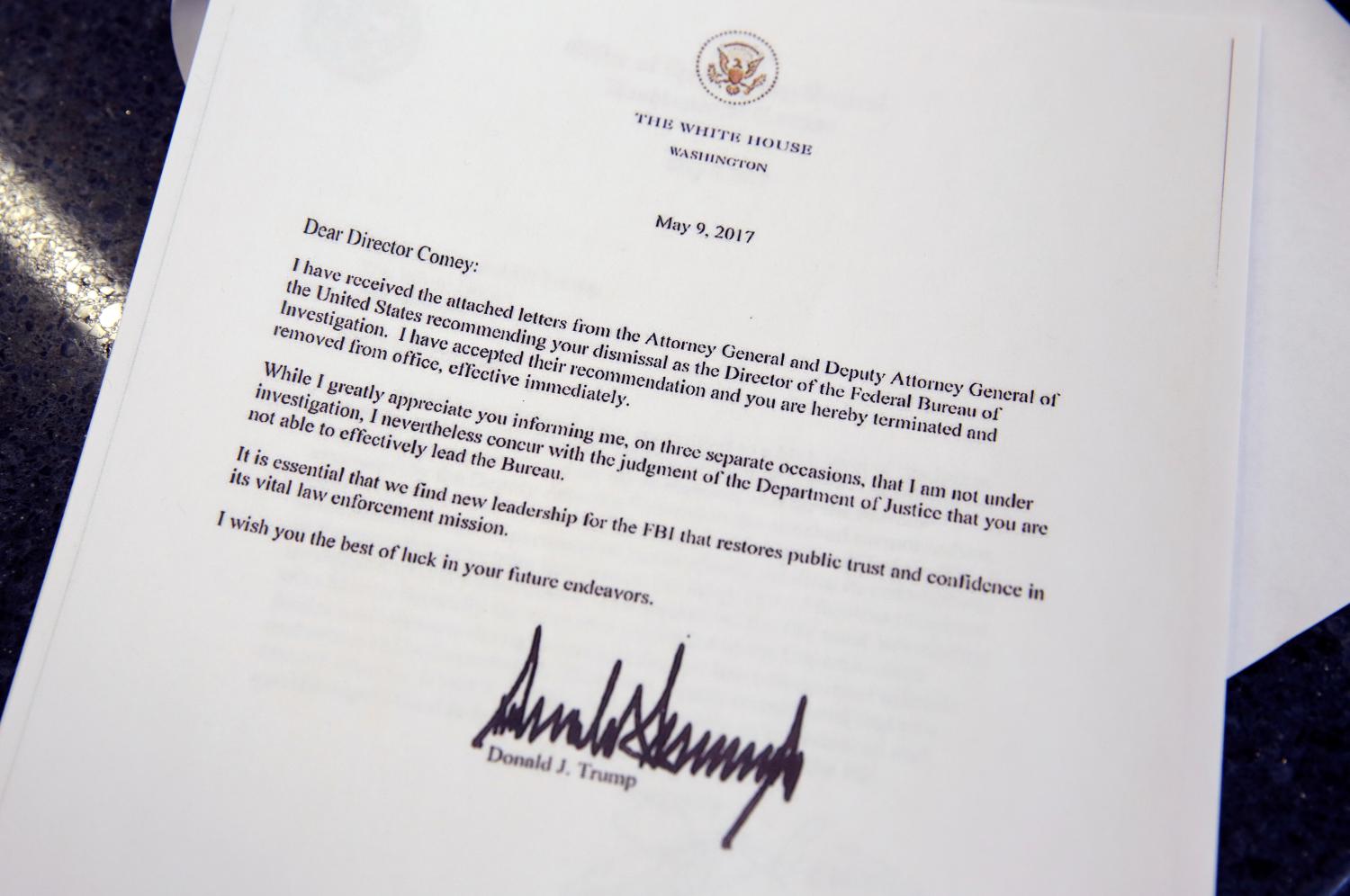Introduction
On May 9, 2017, President Donald Trump fired FBI Director James Comey. Comey had been overseeing the investigation into Russian interference in the 2016 election, including possible collusion between Russia and the Trump campaign. The FBI was also investigating former National Security Advisor and Trump campaign adviser Michael Flynn, who failed to disclose communications with Russian officials and reportedly lied to Vice President Mike Pence about those communications.
President Trump’s firing of Comey and the subsequent revelations about President Trump’s earlier exchanges with Comey while he was FBI Director raise the question of whether President Trump obstructed justice by endeavoring to impede those investigations. In June, press reports indicated that Special Counsel Robert Mueller is indeed investigating the very question of whether President Trump obstructed justice.1 Mueller has since impaneled a grand jury in Washington D.C., issued subpoenas, and has begun seeking interviews with current and former White House officials.2
In this paper, we break down and analyze the question of whether President Trump may have obstructed justice and explain the criminal and congressional actions that could follow from an obstruction investigation. Addressing the possibility of criminal behavior by President Trump and the complicated issues it raises is not a task that we take lightly. Dissecting allegations of criminality leveled against an individual who has been duly elected president and who has sworn to preserve, protect, and defend our Constitution is an inherently solemn task. But it is our hope that by presenting a rigorous legal analysis of the potential case against the president, we will help the American people and their representatives understand the contours of the issues, regardless of whether it is eventually litigated in a court of law, the halls of Congress, or the court of public opinion.
Our paper proceeds in four parts. In Section I, we summarize the relevant facts and allegations that can be gleaned from witness testimony and credible media reports. In Section II, we explain the law governing obstruction of justice and how it applies to the apparent facts and allegations as currently known. In Section III, we lay out the options available after Special Counsel Mueller has completed his investigation. These options include referral of the case to Congress, indictment of the president, holding the case pending removal of the president, and closing the case without indictment. Finally, in Section IV, we discuss the actions that Congress could take concurrently with or in addition to Mueller’s investigation. We explain that although Congress’s decision to take those steps is ultimately governed by both political and legal standards, there is precedent for impeaching a president on grounds that he has obstructed justice, obstructed a congressional investigation, or been convicted of a crime, should those circumstances arise.
We also have appended a number of documents that form the factual and legal basis for this white paper. Appendix A contains a factual chronology with the sources we relied on as well as a copy of former FBI Director James Comey’s statement for the record before the Senate Intelligence Committee. Appendix B contains copies of the federal obstruction laws and other relevant criminal statutes. Appendix C contains the authorities governing Special Counsel Mueller, including the Department of Justice’s special counsel regulations and the order defining his jurisdiction. Appendix D contains the articles of impeachment we discuss, official versions of which can be difficult to locate.
Finally, one crucial caveat that is important to note: the publication of this paper comes at a time when our understanding of the facts is still developing and without the benefit of the investigative tools that a prosecutor (or even a defense attorney) might employ. While we fully expect that our understanding of the facts relevant to this case will improve in the weeks and months ahead, we believe that the analysis we provide and the precedents we have collected will be relevant to the discussion regardless of what the investigations by Special Counsel Mueller and by Congress uncover.
Download “Presidential obstruction of justice: The case of Donald J. Trump.”
Note: Citizens for Responsibility and Ethics in Washington (CREW) is a party (and is providing representation to other parties) in active litigation involving President Trump and the administration. Noah Bookbinder is the executive director and Norman Eisen is the chair and co-founder of CREW. Barry Berke and Kramer Levin are outside pro bono counsel to CREW.
-
Footnotes
- Devlin Barrett, Adam Entous, Ellen Nakashima, & Sari Horwitz, Special Counsel Is Investigating Trump for Possible Obstruction of Justice, Officials Say, Washington Post, Jun. 14, 2017, available at https://www.washingtonpost.com/world/national-security/special-counsel-is-investigating-trump-for-possible-obstruction-of-justice/2017/06/14/9ce02506-5131-11e7-b064-828ba60fbb98_story.html.
- Carol D. Leonnig, Rosalind S. Helderman, & Ashley Parker, Mueller Gives White House Names of 6 Aides He Expects to Question in Russia Probe, Washington Post, Sept. 8, 2017, available at https://www.washingtonpost.com/politics/spicer-priebus-hicks-among-six-current-and-former-trump-aides-mueller-has-expressed-interest-in-interviewing-for-russia-probe/2017/09/08/3b32779e-949a-11e7-aace-04b862b2b3f3_story.html?utm_term=.386350336a7c.






